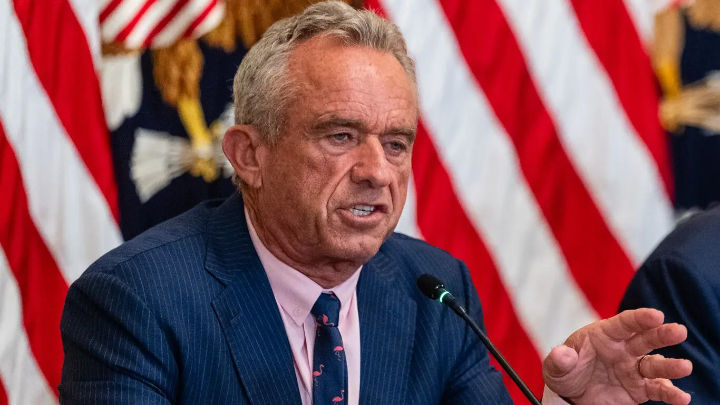mRNA Vaccine Funding Cut Alarms Experts
- Aug 7, 2025
- 2 min read

Health and Human Services Secretary Robert F. Kennedy Jr. has drawn strong criticism from the scientific community by canceling nearly $500 million in federal funding earmarked for the development of future messenger RNA (mRNA) based vaccines. This decision follows the Trump administration's withdrawal of a multi-million dollar contract with Moderna for a bird flu vaccine, also mRNA-based.
Kennedy Jr. has justified his action by stating that mRNA vaccines "do not perform well against viruses that infect the respiratory tract" and that "the risks outweigh the benefits". He indicated that the department will prioritize "safer and broader" vaccine platforms, such as whole-virus vaccines, a method over 100 years old. These measures are part of a pattern of decisions by the Secretary, who has also withdrawn recommendations for COVID-19 vaccines and dismissed the panel that issued immunization recommendations.
However, numerous public health experts and scientists have expressed "astonishment" and "dismay" at this action. Dr. Michael Osterholm, director of the Center for Infectious Disease Research and Policy at the University of Minnesota, with over 50 years of experience, called the decision "the most dangerous public health decision" he has ever seen a government body make. Scientists like Peter Hotez and Jennifer Nuzzo have categorically disputed Kennedy's claims as "inaccurate" and "wildly incorrect," accusing him of sowing public doubt.
mRNA technology was crucial in the battle against COVID-19, proving "extremely safe and effective" by significantly reducing severe illness, hospitalizations, and deaths. One of its key advantages is the speed with which it can be developed compared to traditional vaccines, which is vital for responding to future pandemics; for example, it is estimated that enough vaccine could be produced for the entire world within a year for an influenza pandemic, unlike the 15 months required for only a quarter of the global population with conventional methods. In fact, this innovation was recognized with the Nobel Prize in Physiology or Medicine in 2023.
Beyond COVID-19, mRNA vaccines show enormous potential to combat a wide range of infectious diseases, including avian bird flu, SARS, MERS, HIV, influenza, hepatitis C, tuberculosis, and various forms of cancer, among others. Experts like Rick Bright and Chris Meekins warn that cutting funding for mRNA development "undermines our ability to rapidly counteract future biological threats" and creates a "national security vulnerability" that could result in "incalculable" deaths.
In response to the situation, Dr. Osterholm and a group of 25 leading scientists are launching the "Vaccine Integrity Project". This initiative aims to provide the public with rigorous and verified scientific information on vaccine safety and efficacy, based on the evaluation of over 17,000 scientific information abstracts, to counteract misinformation.











Four years ago, my husband was diagnosed with IPF (Idiopathic Pulmonary Fibrosis), a moment that changed our lives significantly. For more than two years, he followed his prescribed medications and attended regular medical checkups. Despite this, his symptoms persisted, and we remained concerned about his overall health. He struggled with low energy, frequent discomfort, and the emotional stress that came with ongoing uncertainty.In search of additional support, we decided last year to explore a herbal treatment program offered by NaturePath Herbal Clinic. We approached it cautiously and without high expectations. Over time, however, we began to notice encouraging changes. His tiredness eased, his digestion became more stable, and he appeared stronger and more at ease overall. Little by little, his…